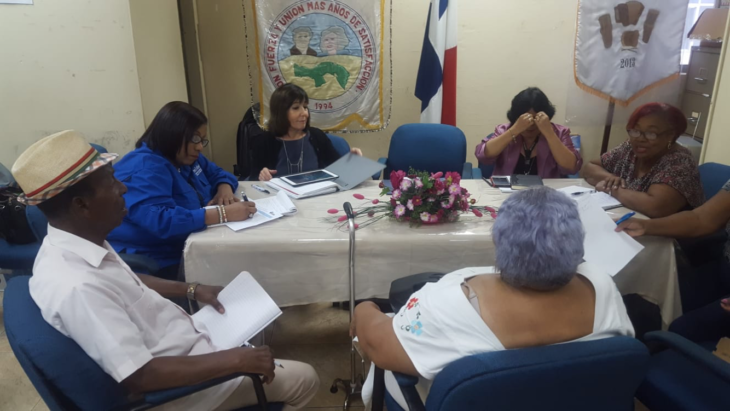The joint work with the Ministry of Social Development helps to bring the Plan into line with the international programmes promoted by the World Health Organisation

The EUROsociAL Programme assisted in this by providing expert advice from an international consultant specialising in senior citizens, as part of a broader action providing support for the country’s Ministry of Social Development (MIDES) so that the country can have a consolidated Plan validated by all the different sectors.
Panama is in the midst of a demographic transition as in recent years it has recorded gradual ageing, caused by, among other factors, low fertility and birth rates, a fall in the death rate and an improvement in health services. The 2010 national census showed that 7.4% of the total population were seniors, a figure that rose to 11% in the 2016 census.
In order to meet its commitment to ensuring the welfare of the entire elderly population, the Panamanian state joined International Plans and Strategies in 2003. Since then it has implemented a series of actions designed to create a policy that will respond to the challenges of the country’s ageing process, draw up a National Policy for Senior Citizens and formulate Law 36 of 2016 setting out the regulations for the overall protection of the rights of senior citizens.
In spite of the progress made in the formulation and implementation of Public Policies for Senior Citizens, difficulties have occurred while fully implementing them, due to the absence of a platform, or Plan, that would efficiently and effectively permit intersectoral coordination and collaboration, designed above all to guarantee the bio-psycho-social welfare of the elderly population and reduce the level of exclusion of extremely poor senior citizens.
In this context, various ministries in Panama have undertaken in previous years a process to draw up a document that would serve as a basis for a National Plan for Senior Citizens, constructed in consultation workshops with the sectors and social stakeholders that have the co-responsibility for applying the Policy. In 2017, MIDES requested support from the EUROsociAL Programme to consolidate and provide feedback on this document and promote its internal approval and subsequent launch.
The week of expert advice combined visits to representative centres and places catering to seniors, focus groups with seniors and meetings with the institutions co-responsible for formulating the Plan. In addition to the visits and ad hoc meetings, work was done with the MIDES officials responsible for drawing up and presenting the Plan, basing the objectives and actions of the plan on three areas: human rights, gender rights and social justice. Based on these three areas, the Plan was given three pillars: (i) Economic Security in Old Age; (ii) Health and Welfare in Old Age;(iii) Nurturing and favourable environments. These form part of the goal of promoting autonomy and decision-making among senior citizens and helping to bring the Plan into line with the international programmes promoted by the World Health Organisation.
At the end of October, it is finally planned to hold a launch seminar so that the different institutions can validate the National Plan for Senior Citizens and ensure its sustainability after the change in government in 2019.
Área de políticas sociales / Social Policies Unit. EUROsociAL+ / IILA



